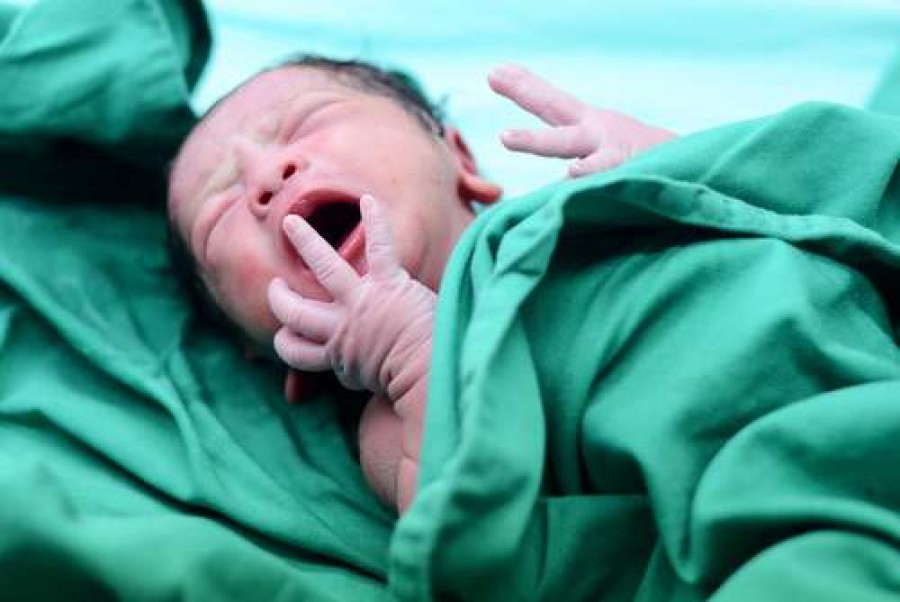Going into Labour: What to expect & how long it lasts

The time has arrived! You may be on, just before, or just past your due date and you’ve started to experience the early signs of labour!
You’ve hopefully discussed this many times with your doctor and midwife, and had time to mentally prepare yourself and build a picture of what to expect.
While it’s difficult to predict exactly how long your labour might last, you can at least start to prepare for what to generally expect for labour and giving birth – whether this is your first baby or not.
What is labour?
When your baby is ready to be born, your body will start the birthing process – known as labour. There are a few signs to look out for that will indicate you’re in the early stages of labour including:
· Show (spotting or a pink mucous discharge from the vagina)
· Engagement of the baby’s head (you will like your baby is pushing down)
· Frequent Braxton Hicks contractions
· A change in your baby’s movements
· Pelvic pressure because of the baby’s position
How long will my labour last?
There are a number of different factors that will affect how long your labour lasts, and it really does vary from woman to woman.
Your midwife will be able to give you a rough indication, but there are no big predictors to say whether you will have a quick or longer labour.
For first times mothers, an active labour may last about eight hours – again, this is just an estimate based on other first time mums and yours could be much shorter or even much longer (Sorry!).
Very few first time mums find they experience a labour that lasts longer than 18 hours, if it does go on for this long, your doctor will likely recommend an intervention procedure and perhaps even a C-section.
If you’ve had a baby previously, you will probably find that your second labour is much quicker than it was the first time round, as your body will ‘remember’ what it is supposed to do. For many second or third time mums, labour lasts about 5 hours, with it being very unlikely that is would last longer than 12 hours. Again, these are just estimates and do vary. There is no ‘one size fits all’ when it comes to pregnancy!
Some of the other factors that may affect how long your labour lasts for include:
· Strength of your contractions and how long they last for
· How easily your cervix opens up (dilates) – for some women this takes much longer
· Whether you choose to have an epidural as this can slow down labour down
· The position/s you adopt during labour and also the position of your baby
What are the stages of labour and the estimated duration of each stage?
The below table takes a look at each of the stages of labour and how long they typically last for:
| Stage of Labour | Action | First Time Pregnant | Pregnant at least once before |
| First Latent Phase | Slow Cervical Dilation | 6-7 hours | 4 – 6 Hours
|
| Active Phase | Rapid Cervical Dilation | 8-10 hours | 5 – 7 hours
|
| Second Phase | Delivery of Baby | 30 mins to 2 hours | 30 mins – 1 hour
|
| Third Phase | Delivery of Placenta | 15 – 30 mins | 5 – 30 mins
|
When should I go to the hospital?
Many women will be sent back home if they go to the hospital too early, as it is best to sit out the majority of your labour where you can be the most comfortable and relaxed – and that usually isn’t the hospital!
Unless you have been advised of any potential problems or complications that are likely to occur during your labour then it is best to wait it out at home and go to the hospital when you really need to. Your midwife will advise you of when you need to make the move.
The most important indication will be from your contractions and how long and strong they are. Generally, they need to be about 60 seconds long for them to be effectively dilating the cervix.
You should go to the hospital if:
- Your contractions are very strong and regular
- Your water has broken
- You notice blood during labour
What can I do to help myself through my labour?
Preparation is key! If you’re feeling anxious, make sure you have a good chat with your midwife and discuss relaxation tips and tricks to help keep you calm and relaxed, as much as is possible!
Movement helps to take your mind of the pain and get baby moving also! Taking a light walk around the home or in fresh air can be very beneficial.
Stay hydrated and try to eat light snacks if you find your labour going on for a while. It’s important to keep your energy up!
Remember to breathe deeply and slowly, and get your partner involved too.
For many women experiencing labour can seem really daunting and scary, but remember it is an extremely natural experience – one of the most natural in the world! It’s a stressful situation to go to but having your baby in your arms afterwards will be the best feeling in the world.
Most Viewed
-
5 Common Methods of Contraception
Last updated On by Percy Oad -
How to Cope with Male Infertility
Last updated On by Alina -
What is the Difference Between Primary and Secondary Infertility?
Last updated On by Madison -
How to start a child-free life after infertility
Last updated On by Jacinta








